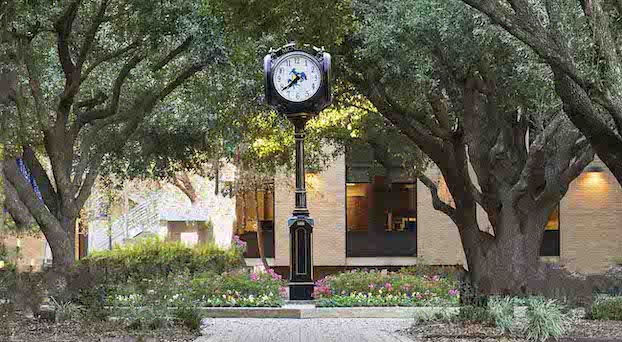Rousse: Expect more specialized degrees at McNeese, fewer general studies offerings
Published 4:46 pm Tuesday, June 4, 2024

- (Special to the American Press)
McNeese State University’s new president, Wade Rousse, began his talk to the Lake Charles Kiwanis Club Tuesday with some dismal statistics. The latest U.S. News and World Report “Best State Rankings” outs Louisiana as at the very bottom of the list, overall. Its economy is ranked 49th.
Rousse, as an economist, took note. As the incoming eighth president of McNeese, he talked about the impact of higher education on the economy, and the economy on higher education.
“I argue that what we do in higher education, especially in a regional institution, the true metric of success is economic development. Because a regional institution by its very admission is responsible for developing the future workforce of that region, that economy.”
Rouse said McNeese State University’s impact is good, over $600 million, and his plan to make it even better is to “create a graduate that has the skills to be gainfully employed on day one.”
That will take some curriculum updating, emphasis on specialized degree programs for regional opportunities, and it could spell the end to “general education” degree programs that might have been around a long time.
“I’m saying there are programs that might disappear that may be in the liberal arts. But I still think you’re going to have programs that survive in the liberal arts and get stronger, and those programs that are going to survive are the ones that are going to be able to support our region,” and be courses that help graduates develop important critical thinking skills.
Rousse said the school’s new initiatives could also signal the end to college as a party ground until that third or fourth year when students finally buckle down.
Pricing the education product
The day before Rousse gave his talk, the Louisiana Senate passed a bill that gives colleges and universities more autonomy to set tuition and fees. Louisiana’s four university systems can set differential fees, an amount charged on top of base tuition for more expensive academic programs.
“For the first time ever, we can price our product according to cost,” Rousse said, “and see universities more like private industries.”
As a result of this pricing, Rousse expects increased enrollment in degree programs with a high return on investment and redirection of investment into programs that have a higher ROI, “a huge advantage to an economy like ours that is really hot.”
“If you produce a product that has the skills necessary to be gainfully employed with the curiosity to be a pioneer in their field, we won’t be able to meet market demand. I am pumped about being in this position because I think there’s a lot of opportunity.”
One hundred percent of McNeese graduates with chemical engineering, accounting, teaching and nursing degrees are placed, according to Rousse.
“We can’t produce enough. The moral of this story is, you’re going to start seeing, in my mind, a specialization in degrees, programs that get graduates a job.”





